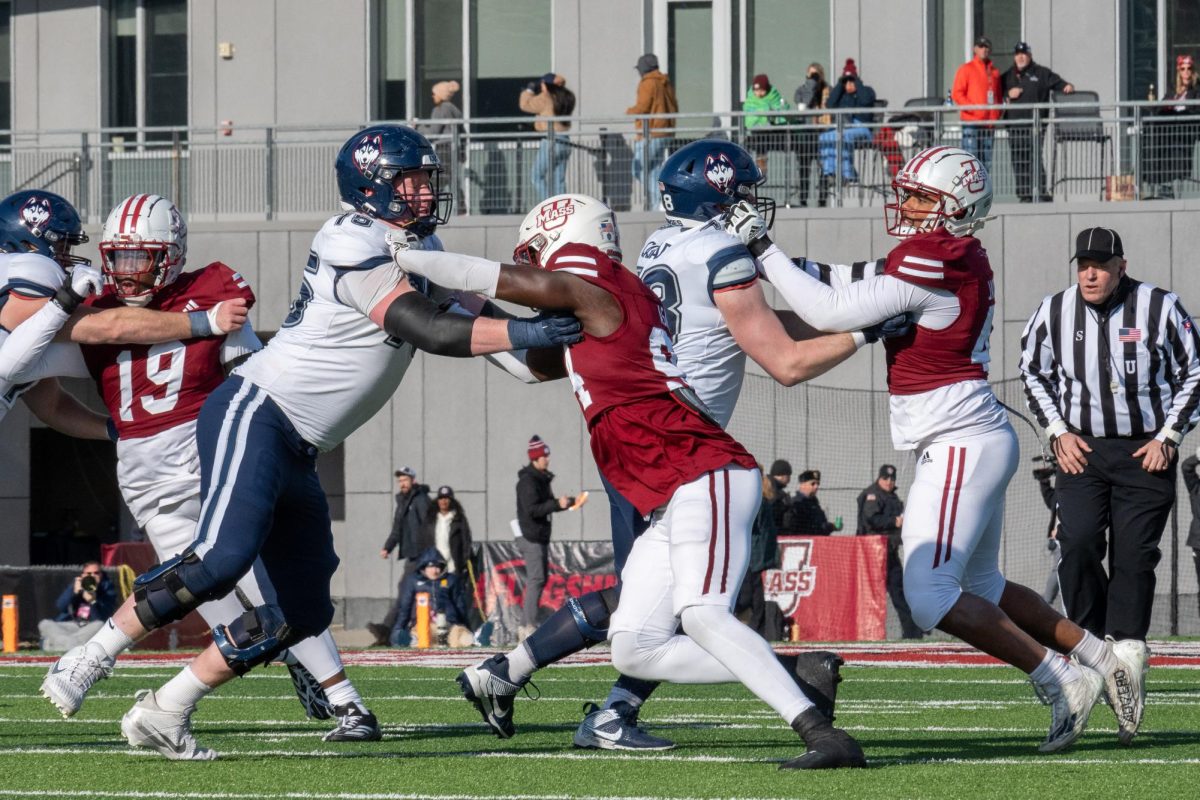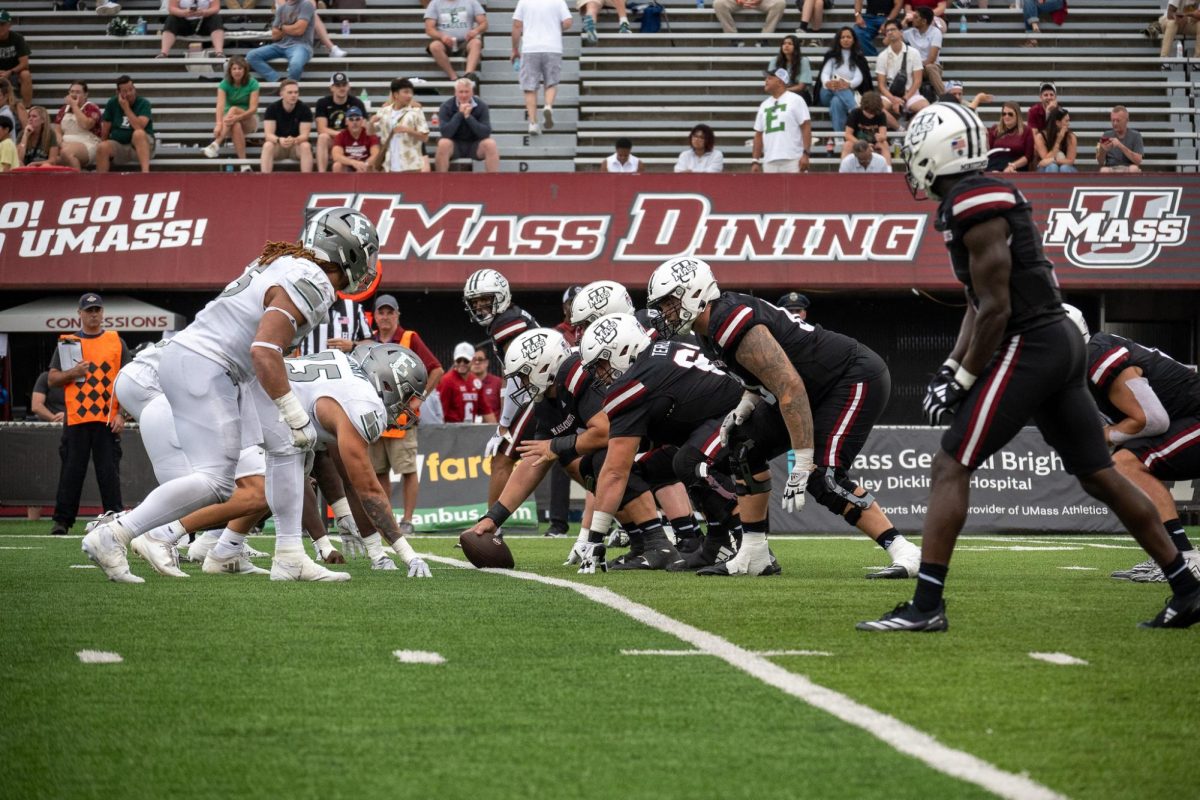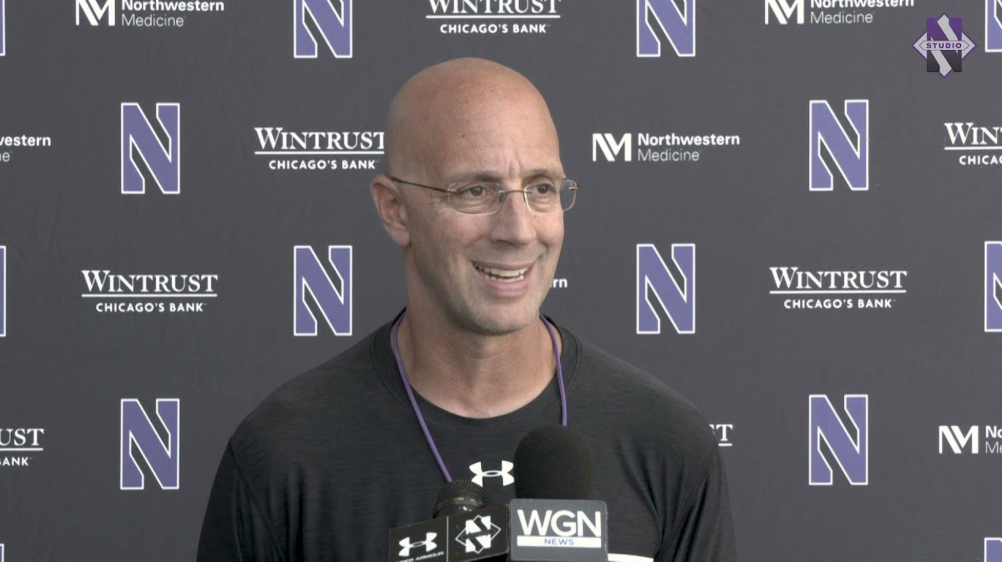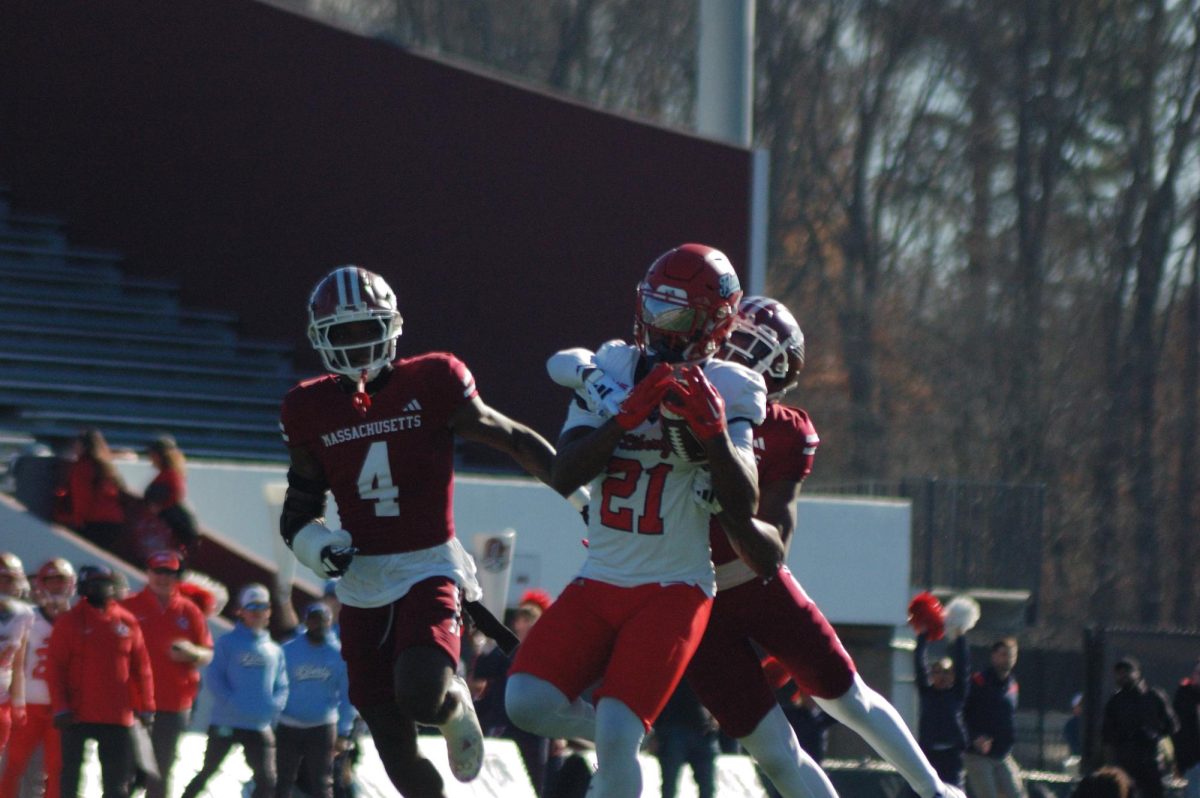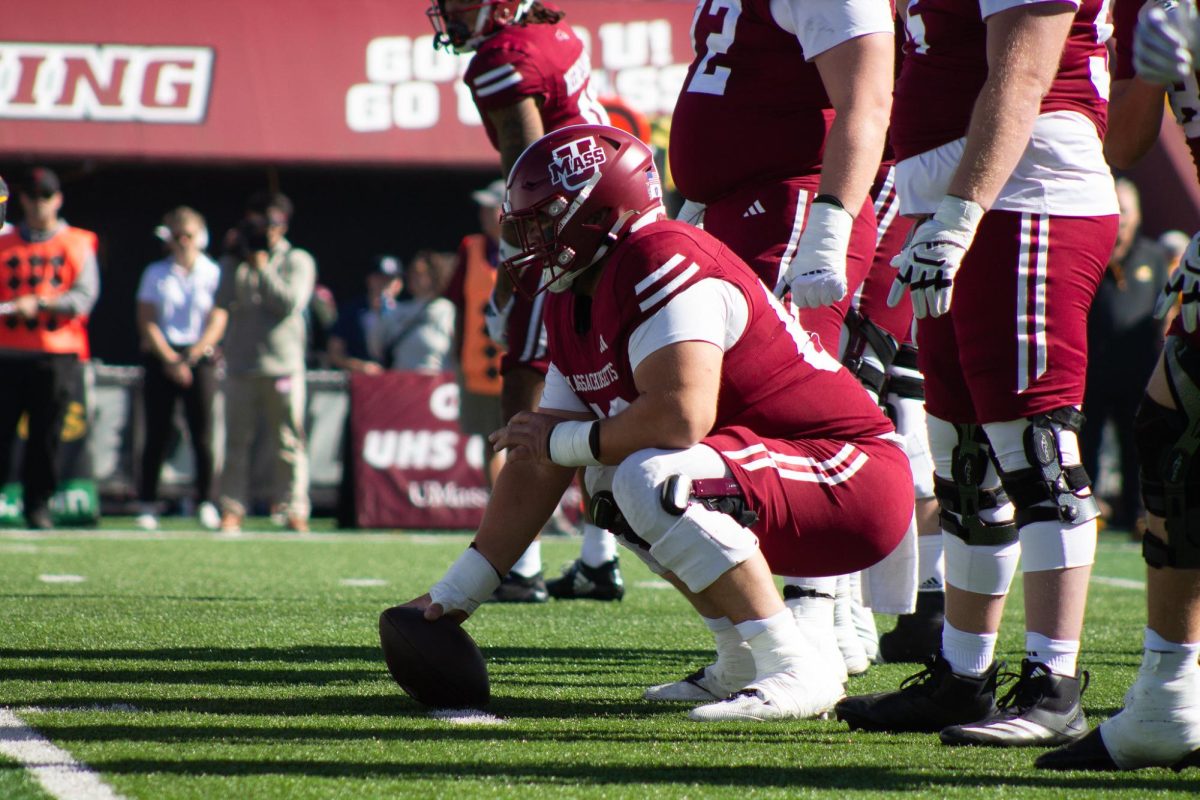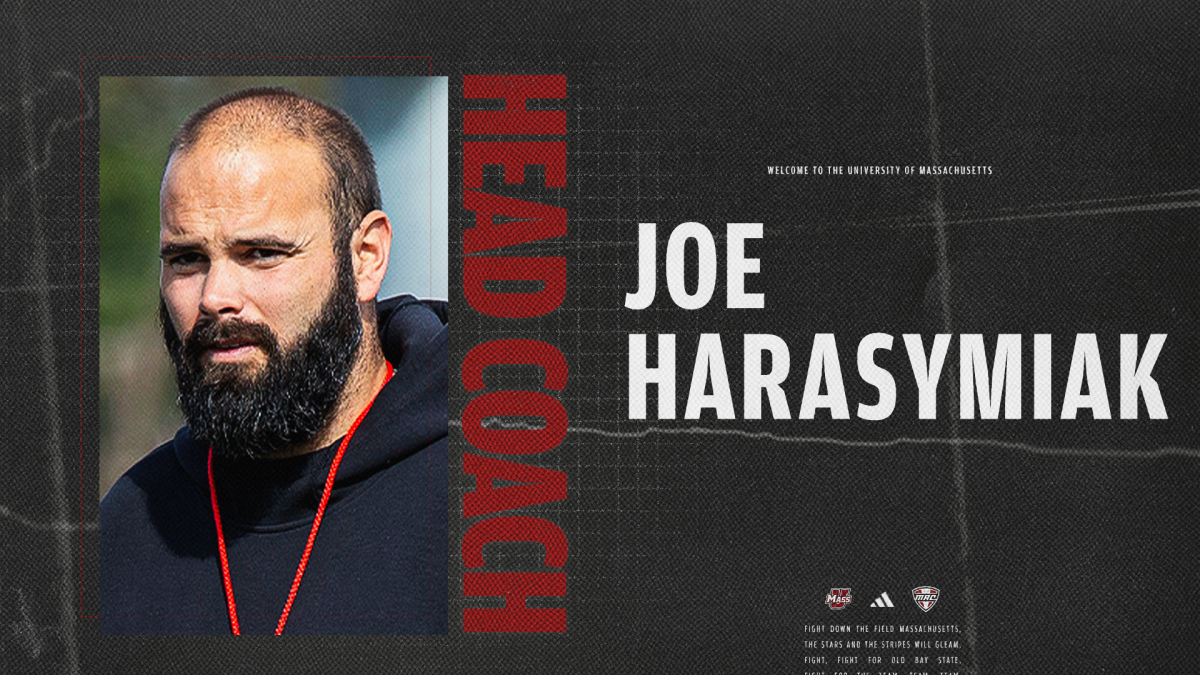
A motion to poll all University of Massachusetts faculty regarding their support of UMass football’s continued participation as a member of the Football Bowl Subdivision was defeated Thursday at a UMass Faculty Senate meeting.
The motion, which was introduced by Frank Hugus, professor of German and Scandinavian studies, was met with contention from numerous members of administration including Chancellor Kumble Subbaswamy. It came during the ad hoc committee’s annual report on FBS football and focuses primarily on the finances surrounding the program.
According to Hugus, the goal of the poll, which was to be conducted by the rules committee, was to further determine how faculty feels on the issue of UMass football’s involvement at the FBS level. The Minutemen moved up to the FBS level – the highest level of college football – after their 2011 season, leaving the Football Championship Subdivision.
Subbaswamy, who supports the move, urged the senate to refrain from passing the motion in an impassioned speech, citing potential negative backlash in a time where he believes the University needs to be united.
“Do you want to make your chancellor, who is working so hard to make this campus a top-20 academically recognized campus, into someone who is in a war with his own faculty?” he said.
“Is that an accurate depiction? That is what the (Boston) Globe will write, which is what The Republican will write, which is what everyone will write because, of course, they are hungry for these stories. Do you really want that to be the story for the next six months? That’s your call.”
Subbaswamy responded to a number of faculty senate members, including ad hoc committee Co-Chair and architecture and history professor Max Page, who is a staunch opponent of UMass’ move to the FBS.
The Chancellor questioned the purpose of such a poll, and reminded the senate that the decision was ultimately his.
“Whatever it is that you find out from that poll is non-binding and does not have any impact on what I decide to do or not to do about FBS football,” Subbaswamy said. “I will eventually always make the decision that I think is in the best interest of the campus based on all the information I have available.”
Page addressed the senate, as well as the Chancellor, saying he “loved” the administration, and the goal of the motion was not act as its opposition. But he also believed the senate’s duty is to further gather information in the best interests of the campus.
“The first purpose of the faculty senate is to say, ‘What are the interests of the faculty that are broadly understood on campus?’” Page said. “The notion that if we know more, that it somehow undermines (the Chancellor), that doesn’t make much sense.”
Provost Katherine Newman and Vice Chancellor for University Relations John Kennedy spoke in support of Subbaswamy, who talked on two separate occasions, and the football program.
Page addressed the entire senate at the beginning of the report’s delivery and spoke at length about the negatives surrounding the football program. He described UMass as an “FCS team purchased at an FBS price,” a “sunk cost” and also cited a regional lack of interest in college football.
He cited University of California Santa Barbara, a school with no football program and highly rated academics, as a preferred model that UMass should follow. Current UMass Athletic Director John McCutcheon recently interviewed with UCSB for its vacant athletic director opening.
Page said if UCSB is good enough for McCutcheon, it should be good enough for UMass.
Subbaswamy took aim at Page, saying that Page’s “intention was very clear” in terms of restricting the growth of the football program. Subbaswamy abruptly and briskly left the meeting at approximately 5 p.m. Shortly after, the motion was put to a vote and defeated.
“I haven’t seen (Subbaswamy) speak many, many times, but he did seem very animated today,” professor of finance Nelson Lacey said. “He seemed like he honestly felt like he was going to be pushed into trying to defend this position once again. It looked like, for sure, like he didn’t want anything to do with that.”

Lacey, who isn’t a member of the faculty senate, said he would have voted no on polling faculty as well, as the phrasing of the survey would most likely create results that were “very negative toward football.”
“That would have been a tough survey to write if they wanted to do it in a non-biased way,” he said.
The ad hoc committee produces an interim report each year on the football program’s finances. It’s a bi-partisan committee composed of 17 members which was originally formed to create more transparency and to better understand the finances incurred with the move to FBS football.
The committee was formed on a three-year charge, which is set to expire on a spring semester. Lacey said the committee was originally formed because the faculty senate had a “complete lack of trust” regarding the released football financials.
Lacey opened the presentation of the report with his opinion that the committee has served its purpose, solved the distrust and can now be dissolved.
“I really believe that was true, I really believe we worked hard on that,” Lacey said. “I would like to think there’s a good chance they decided to dissolve the ad hoc committee.”
Page said the committee indeed fulfilled its goal, but could envision the formation of another committee to investigate broader issues surrounding football, such as concussions.
“I think the committee has had an important role because the numbers were not clear,” Page said.
“I think our committee did a lot of good work. Frankly, I wish we could discuss some of the issues about concussions and other impact. We have a narrow charge, which is a charge on finances. I think we could focus on other, bigger issues.”
The meeting – which was decidedly more uneasy than last year’s – only briefly touched upon the financials listed in the report.
The report stated that the audited 2014 football budget was $7,238,764, a number which exceeded the pro forma projected budget of $6,918,966. According to the report, “institutional support” covered $4,788,758 of that budget.
That budget did not include the $1,055,330 in one-time buyouts of the contracts of fired coaches, such as former coach Charley Molnar. That expense was covered by private funds.
“In sum,” the committee found, “the annual athletic department base budget for football, as compared to a pro-forma set of financial statements that are now four years old, has grown by $3,698,578. Financial support from the university and the state for the football team budget has grown over these four years by $2,1333,734 (to $5,291,534). Program generated revenues, again compared to the pro-forma, have grown from virtually zero to $2,500,000.”
The report factors in a variety of expenses, such as the cost of marketing and bussing students to games, which is a University expense and is not covered by the athletic department. With the move to FBS, the football team expanded its roster capacity. As a result, the school offered increased “gender equity” scholarships to comply with Title IX regulations.
According to the report, “the total net amount of university spending on football in 2015 is estimated to be $8,615,610.”
Mark Chiarelli can be reached at [email protected] and followed on Twitter @Mark_Chiarelli.







